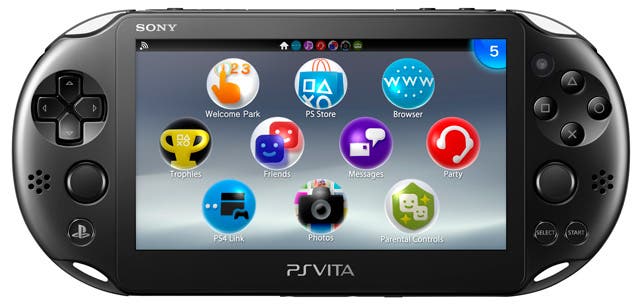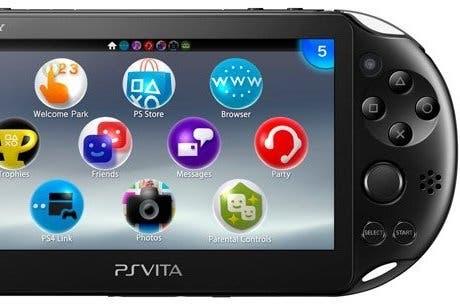Sony to partially refund early US Vita adopters after its "deceptive" marketing
Get $25 cash or $50 credit following FTC ruling.
The Federal Trade Commission, a US-based government agency, has found Sony guilty of "deceptive acts or practices" in regards to its advertising of the Vita at launch, and now it must pay back to all those who purchased the handheld before 1st June 2012.

Those affected will receive an e-mail notification from Sony offering a $25 cash refund or $50 in credit, the FTC announced.
So what did Sony violate, exactly? Let me count the ways.
First off, its ads suggested that the handheld device would support Remote Play with any PS3 game, so you could play it on the go. In actuality, that feature ranges from title to title. In fact, there were even ads showing someone playing Killzone 3 on the Vita, despite the fact that the game doesn't feature Remote Play support. Whoops!
"Very few, if any, other PS3 games of similar size and complexity are remote play compatible," the ruling noted.
Furthermore, Cross-Saving between PS3 and Vita was an advertised feature that was suggested to be available to all titles, when in fact this also ranges based on the title in question. Ads made it look like you could stop a PS3 game at any time then resume it on Vita, when lots of games either didn't offer this option at all or only offered it in a limited capacity. For example, MLB 12: The Show offered Cross-Save, but only between lengthy full nine-inning games. Needless to say, this wasn't a very convenient way to swap your progress back and forth, yet that's what ads suggested.
It also wasn't clear that users had to own copies of a game on both PS3 and Vita to do this. That may seem obvious to us now, but given how much Sony was highlighting Remote Play it appeared that this would be the sort of thing you could do.
Finally, early Vita ads strongly hinted that you'd be able to play live multiplayer matches if you splurged on the 3G model and subscribed to AT&T's Mobile Broadband Network. As it turned out, this was limited to asynchronous or turn-based gaming.
The FTC also went after the ad agency representing Sony at the time, Deutsch LA, for "deceptive product endorsements" after it asked employees to toss out positive Vita-related messages on Twitter from accounts designed to look like personal profiles. As such, hashtags like #gamechanger were disguised not to look like advertising when they really were.
You can read the full FTC ruling here.


